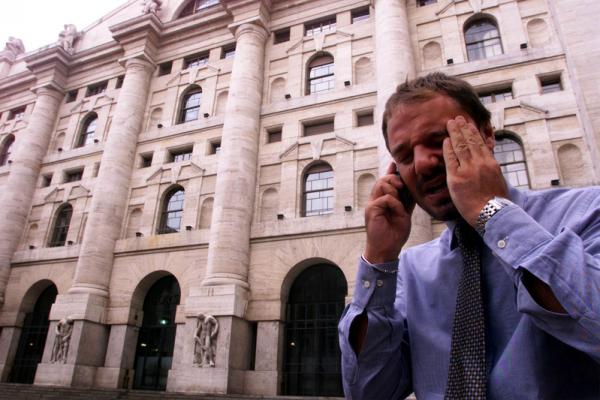By Maria Pia Quaglia and Danilo Masoni
MILAN (Reuters) - Italian banks and asset managers are rushing to tap a 10 billion-euro (£8.4 billion) wave of money expected to flow into small- and mid-caps, as clients seek tax breaks on investments in a government-sponsored plan, potentially creating a bubble.
The scheme, called Piano Individuale di Risparmio (PIR), offers tax savings if part of the money is invested into small-sized domestic stocks and locked in for five years.
Final details are still missing but that has not stopped a rush that has sent indexes tracking Italy's small-caps to all-time highs, easily outpacing the country's bluechips (FTMIB) and peers in other European markets.
PIR, along with easing political risks and a brighter economic outlook, is also drawing money into Italian asset managers.
Analysts at Bank of America (NYSE:BAC) Merrill Lynch noted that inflows at Italian fund managers were outperforming those seen in the industry elsewhere in the region, adding that PIR could give the Italian fund industry a "new lease of life".
However, the rapid rally in small-caps and rush of funds is sparking worries about a price bubble forming as valuations diverge from fundamentals.
The rally, which gained steam at the start of 2017, has lifted valuations of some industrial companies to extreme levels that are usually a privilege of top luxury groups like Ferrari (MI:RACE) or LVMH (PA:LVMH).
Italy's STAR index (FTSTAR), which tracks companies worth 1 billion euros or less, is up 29 percent this year to record highs, leaving behind peers in France (CACMS) or Germany where gains are less than half that. Pan-European small caps (SCXP) are up 12 percent.
"The risk of a bubble is there: a lot of money is rapidly flowing," Banca Mediolanum (MI:BMED) CEO Massimo Doris said at a conference. His firm, one of Italy's biggest asset gatherers, has already launched funds that are compliant with the tax break scheme.
Only six months ago Italy's smaller firms were off limits for overseas investors, who feared political turmoil in the euro zone could leave them trapped in illiquid stocks.
But a conference this year where executives from STAR-listed companies presented to investors saw a record number of meetings involving more than 100 foreign investment houses including from France, Switzerland, Germany, the Nordics and the United States.
DON'T BE GREEDY
"Our advice is 'enjoy the rally but don't be greedy'," said Citi's Mauro Baragiola, the first analyst at a foreign brokerage to warn clients about a potential bubble.
Valuations are getting stretched, leaving little room for disappointment on the earnings front.
Alessandro Pacchiani, head of asset management at Banca Ifigest in Milan said there were high risks of significant corrections, especially for firms listed in the STAR segment, where some multiples were "too generous".
"We hope the market will start to be selective," he said.
According to Exane BNP Paribas (PA:BNPP), companies like industrial machinery producer IMA (MI:IMAI), pump maker Interpump (MI:ITPG) and Datalogic (MI:DAL), which makes bar code readers, have already reached peak multiples.
These companies are priced at 27-33 times earnings, more than twice as much as the average for the STAR index they are listed on. As a whole the STAR is still cheaper than its German and French peers.
One hope is that the rally in small-caps stokes the market for new listings and share sales as entrepreneurs tap investor enthusiasm to raise new capital when valuations are high.
A fresh supply of shares coming to the market may lessen the risk of overheating.
"If IPOs and share sales grow any bubble would deflate, multiplying opportunities and attracting institutional investors from abroad," Mediolanum's Doris said.
